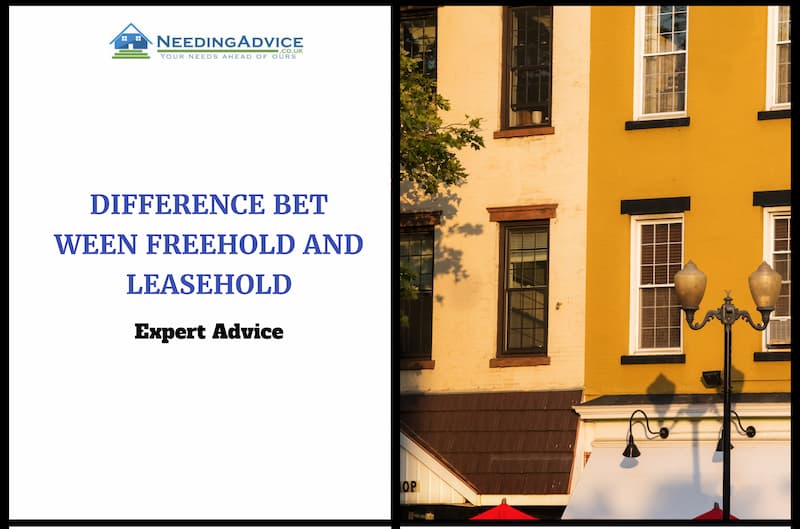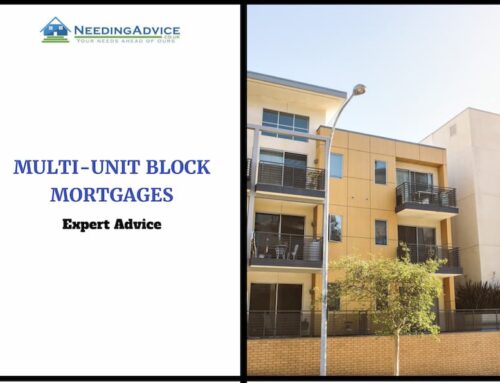Buying a home in the UK can be a bit overwhelming, especially when you come across terms like “freehold” and “leasehold.” As a mortgage broker, I’ve seen how confusing this can be for buyers, especially first-timers. But understanding the difference between these two types of property ownership is crucial for making the right decision for your long-term financial goals.
In this guide, I’ll break down what freehold and leasehold really mean in everyday terms and explain how they impact everything from your mortgage to your ongoing costs. Let’s dive in!
The article is updated and correct as of Oct 24, 2024
What is Freehold Property?
When you buy a freehold property, you own both the building and the land it sits on outright. There’s no expiration date or time limit on your ownership—you have complete control over the property for as long as you own it. Most houses in the UK, especially detached and semi-detached houses, are freehold.
Benefits of Freehold:
•No Ground Rent or Service Charges: As the freeholder, you won’t be paying any additional fees like ground rent or service charges, which is typical with leasehold properties.
•Full Ownership Rights: You have the freedom to alter or extend your property, as long as you follow local planning rules. You’re the boss when it comes to maintenance, too.
•Peace of Mind: Freehold ownership offers stability. There’s no lease to worry about running out, no freeholder dictating what you can or can’t do.
However, owning a freehold property means you’re responsible for all the maintenance costs—whether it’s the roof, the walls, or the garden. But for many people, the independence is worth it.
What is Leasehold Property?
If you’re buying a leasehold property, especially a flat or apartment, you’re buying the right to live there for a specific period of time—often 99, 125, or even 999 years. You don’t own the land the property is on—that’s owned by the freeholder (or landlord). Once the lease expires, ownership of the property reverts to the freeholder unless you extend the lease.
Costs to Consider with Leasehold:
Ground Rent: This is an annual fee you pay to the freeholder for the land. It can be a small amount, but some newer leases have ground rents that rise over time, which can get expensive.
Service Charges: These cover the maintenance of shared spaces like hallways, gardens, or the roof. It can vary depending on the building and can sometimes be quite high, especially for retirement properties or larger apartment blocks.
Buildings Insurance: In most cases, the freeholder will handle the buildings insurance, but the cost is passed on to leaseholders through service charges.
Lease Extensions: When the lease gets down to around 80 years, you’ll need to extend it. Extending a lease can be a complex process and isn’t cheap, but it’s necessary if you want to keep the property’s value intact.
The Key Differences Between Freehold and Leasehold
Understanding the core differences between freehold and leasehold can help you decide which is right for your situation:
| Feature | Freehold | Leasehold |
|---|---|---|
| Ownership | You own both the property and the land | You own the property, but not the land |
| Ongoing Costs | No additional costs beyond maintenance | Ground rent, service charges, and possible lease extensions |
| Control Over Property | Full control over modifications and extensions | Limited control; permission required from freeholder for changes |
| Lease Expiry | No lease to worry about | Ownership for a fixed term (e.g., 99 or 125 years) |
| Maintenance Costs | You are responsible for the entire property | Shared costs for communal areas; freeholder manages external upkeep |
How Leasehold Affects Your Mortgage
When it comes to getting a mortgage for a leasehold property, the length of the lease is important. Most lenders prefer properties with a lease of 80 years or more. Anything below that can make it tricky to get a mortgage, and if you do, it might come with higher interest rates or less favorable terms.
If you’re considering buying a leasehold property with a short lease (below 80 years), you’ll likely need to negotiate an extension with the freeholder. While this is possible, it’s an expensive process, and it’s important to factor those costs into your overall budget.
Leasehold Reform: What’s Changing?
Over the past few years, there’s been a lot of talk about leasehold reform in the UK. The government is working on making things fairer for leaseholders by reducing or even eliminating ground rents for new leases and making it easier to extend leases. These reforms are great news for leasehold property owners, but they are still being rolled out, so it’s worth keeping an eye on any changes that might affect your purchase.
Common Leasehold Issues to Be Aware Of
While leasehold properties can be more affordable upfront, there are some common issues that buyers need to be mindful of:
•Rising Service Charges: You might find yourself contributing to major repairs or refurbishments in shared spaces, often with little control over how much it costs.
•Ground Rent Increases: Some leases include provisions allowing the freeholder to increase ground rent over time, which can make the property more expensive to hold onto.
•Restrictions on Alterations: Want to make changes to your home? You’ll likely need the freeholder’s permission, and they can say no or charge you for the privilege.
Is Freehold Always Better?
While freehold properties offer more control and freedom, they’re not always the best choice for everyone. For one, they tend to be more expensive than leasehold properties, which could put them out of reach for first-time buyers. Plus, if you’re buying in a city, flats are often leasehold, which might be your only option.
On the other hand, freehold owners are responsible for everything—from major repairs to buildings insurance—so it’s important to consider how much time and money you’re willing to invest in maintaining the property.
Can You Buy the Freehold of a Leasehold Property?
Yes! In some cases, you can purchase the freehold of your leasehold property, especially if you’re in a block of flats. This is known as leasehold enfranchisement, and it gives you more control over the property, including eliminating ground rent. However, it’s a complex process and can be expensive, so make sure to get legal advice before going down this route.
Final Thoughts: Freehold vs Leasehold
Deciding between freehold and leasehold comes down to your personal situation. If you want complete control over your home and fewer ongoing costs, freehold might be the best option. On the other hand, leasehold properties are often more affordable and available in city centers, but come with added fees and less autonomy.
As your mortgage broker I can help you navigate decisions for long-term plans. If you need any further advice or are looking for help with financing your property purchase, feel free to get in touch.
FAQs
What is the difference between freehold and leasehold in simple terms?
Freehold means you own the property and the land. Leasehold means you own the property for a set period, but not the land.
Why are leasehold properties cheaper than freehold?
Leasehold properties are often cheaper because the buyer doesn’t own the land and must pay ground rent and service charges.
Can you convert a leasehold property to freehold?
Yes, you can buy the freehold through a process called leasehold enfranchisement. It’s most common in flats.
Does a short lease make it harder to get a mortgage?
Yes, leases under 80 years can make it more difficult to get a mortgage. You may need to extend the lease first.
What are the ongoing costs of owning a leasehold property?
You’ll usually pay ground rent, service charges, and may need to extend the lease as it gets shorter.






